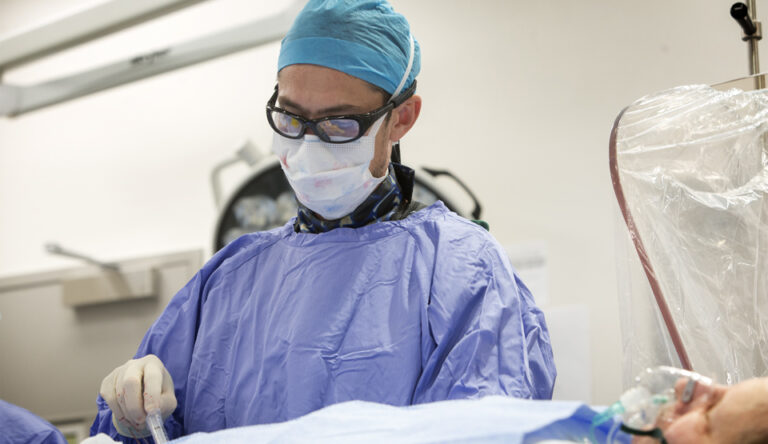Heart problems are the leading reason for death in Australia, claiming the lives of one out of every four Australians each year. Even though a cardiologist is well-equipped to treat most cardiovascular problems, it is sometimes necessary to consult a cardiovascular subspecialist. The speciality of an electrophysiologist in Sydney is one example of this.
A new specialist in cardiovascular medicine has emerged: cardiac electrophysiology. Due to more than a century of recent advances and research, there have been significant advances in the knowledge and management of heart rhythm abnormalities. Cellular electrophysiology and cell genetics, genetics, computer simulations, and imaging have contributed to an exponential increase in understanding of basic heart electrophysiology during the last few decades.
In many patients, the paradigm of proof medicine has resulted in better results due to a more thorough decision-making process. However, it appears to be challenging to integrate significant essential research findings into a system of proof medicine. Fundamental discoveries must be translated into healthcare service more efficiently due to limited research funding and current economic context. The therapeutic approach in cardiac electrophysiology presents a wide range of difficulties.
This article highlights the need for better training of translation electrophysiologists and the actions needed to create a more favourable atmosphere and culture for this type of research.
Cardiologists who specialise in detecting and treating arrhythmias (irregular heartbeats) consult with electrophysiologists, commonly known as cardiac electrophysiologists (cardiac EPs). To keep your heart rhythm in check, they evaluate your heart’s electrical circuitry.
The Job of an Electrophysiologist: What Does It Entail?
Electrophysiologists often test, diagnose, and treat irregular heartbeats at an ample cardiac practice or hospital. A wide range of specialised tests, equipment, and procedures are used to accomplish this. They are trained to do so. They can also give medicine prescriptions or lifestyle advice.
An electrophysiologist in Sydney can identify and treat a wide range of disorders, including:
- Bradycardia. An unnaturally slow pulse.
- Tachycardia. An abnormally rapid rate of heartbeat. There are three primary categories, based on where the heart disease stems from.
- Myocardial Infarction. A pulsating heartbeat that flutters and quivers.
- Arrhythmia (slowing of the heartbeat). Your heart suddenly stops beating.
- Other cardiac irregularities and arrhythmias.
Educating oneself:
Cardiologists who specialise in electrophysiology are known as electrophysiologists. After earning a bachelor’s degree, students must complete the following steps:
- Medical school lasts for approximately four years.
- Internal medicine residency is a three-year programme.
- Additional fellowship training in heart disease can last from 3 to 5 years (s)
- A further two years of study in electrophysiology are required.
- Certification in electrophysiology from the Australian Board of Internal Medicine
Electrophysiologists: What You Need to Know
Due to your symptoms, you may be sent to an electrophysiologist by your cardiologist or primary care physician. You may be referred to an electrophysiologist in Sydney for the following reasons:
- Do you have a faulty heartbeat?
- Are you having or contemplating cardiac ablation, a technique that uses scar tissue to stop periodic signals from reaching the brain?
- If you experience syncope, an abrupt loss of consciousness, please consult your physician immediately.
- Risk of cardiac arrest and eventual demise
- If you are in the process of a cardiac operation
- A pacer or implantable cardioverter-defibrillator could be beneficial (ICD)
The Electrophysiologist’s Office: What to Expect
Arrhythmias can be diagnosed using electrophysiology investigations (EPS), which measure electrical activity. An electrode catheter will be inserted into a coronary artery that goes to your heart by your doctor. The most common location for this insertion is the groyne; however, it can also occur in the forearm or neck. Sending electrical impulses to your heart will allow them to monitor your heart’s activities.
A clinic or hospital’s dedicated laboratory is where most electrophysiology examinations occur. Catheterisation laboratories and electrophysiology labs are common names for this area (or cath lab). The testing should last between one and four hours.
It would help if you did the following before having an EPS procedure:
- Eat nothing for six to eight hours before going to bed.
- If you use any vitamins or medications, be sure to tell your doctor and follow their advice.
- Have someone drive you to and from your appointment.
- At this point, a doctor will analyse your testing results and propose a plan of action.
